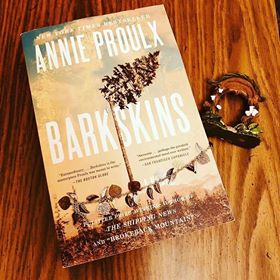 Last semester, I watched a documentary in my French film class. It was called Les glaneurs et la glanuese (The gleaners and I), by Angès Varda. After watching the documentary, talking about it in class, and then going through the holiday season, I got to thinking about something. Would gleaning in the US be bad and why? And why is it almost normal to glean in France (and other places) but not in the US?
Last semester, I watched a documentary in my French film class. It was called Les glaneurs et la glanuese (The gleaners and I), by Angès Varda. After watching the documentary, talking about it in class, and then going through the holiday season, I got to thinking about something. Would gleaning in the US be bad and why? And why is it almost normal to glean in France (and other places) but not in the US? Gleaning is the act of gathering leftover crops after the harvest. It can also expand to a bit more to the gathering items. It is usually associated with an over-consumption and a large waste of food or just items that can be used by others.
 In the movie, Angès (pictured above) traveled around France to show different types of gleaning with a hand-held camera. Some were gleaning potatoes after the harvest, where Angès found heart-shaped potatoes (pictured right). She talked to many of those who were gleaning in the fields and one man who was homeless and gleaned potatoes so he could have something to eat. In France, it is legal for those to glean on a crop field only after the harvest has passed.
In the movie, Angès (pictured above) traveled around France to show different types of gleaning with a hand-held camera. Some were gleaning potatoes after the harvest, where Angès found heart-shaped potatoes (pictured right). She talked to many of those who were gleaning in the fields and one man who was homeless and gleaned potatoes so he could have something to eat. In France, it is legal for those to glean on a crop field only after the harvest has passed.Another man gleaned old dolls around France and created pillars outside his home to represent the waste of items in the country. There was an episode within the documentary where a man gleaned appliances, had a friend fix them up, and possibly sell them or keep them for later. These were two instances where people were gleaning something other than food but for a special purpose. One man gleaned food after the local market had gone through and then spent the night teaching the men in his apartment building. He gleaned to eat, and taught the other men for no price, just because he wanted them to get an education.
Now, after that, driving around with my mother, I realized something. Why is it, that if we were to see someone going through the leftover bins from a farmer's market, we'd be disgusted or yell at them to get a job (I've seen this happen)? Why is it that we considered gleaning to be so bad? It's taking food that is somewhat undesirable, and feeding someone who does not have the money to get the food themselves somewhere else. Why is that so bad? Why is it that in this country we associate someone trying their hardest to find food to feed themselves, and even going into the trash to do so, is seen as bad and disgusting and our immediate reaction is to say that them having a job will help them? I just can't understand it, and I once use to think like that.
Is it illegal in the US? From what I've found it's not illegal in most states, but from the Good Samaritan Act, places that make a surplus of food are to bring it to shelter and centers for those who live there. Sadly, I don't feel this happens all to often in our country. Maybe we should fight for it to start up again. That way we can be part of our country never being hungry. I know that's something I want.
 I found that two years later she came out with a second movie 'Deux ans après' (Two years later). The cover is two the potatoes Angès had gleaned in the field, sprouting out and wrinkly. After writing this, I think I'll go ahead and watch this second documentary, see what it's all about and what Angès talks about here. Maybe things have changed since the first film, and gleaning is looked at differently. Those vineyards that deliberately ruined the unwanted crops to stop gleaners stopped, and allowed gleaners to come on and get some food. I'll just have to wait and see when I watch Deux ans après.
I found that two years later she came out with a second movie 'Deux ans après' (Two years later). The cover is two the potatoes Angès had gleaned in the field, sprouting out and wrinkly. After writing this, I think I'll go ahead and watch this second documentary, see what it's all about and what Angès talks about here. Maybe things have changed since the first film, and gleaning is looked at differently. Those vineyards that deliberately ruined the unwanted crops to stop gleaners stopped, and allowed gleaners to come on and get some food. I'll just have to wait and see when I watch Deux ans après.Let me know how you feel about gleaning. Should it be viewed differently in the US? Should we encourage it? Should we stop looking at activities like this as being a bad thing? I want to know how you all feel.
À bientôt!




No comments:
Post a Comment